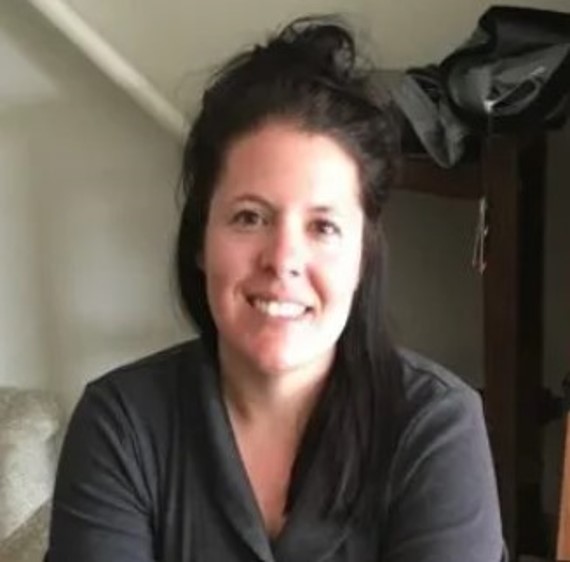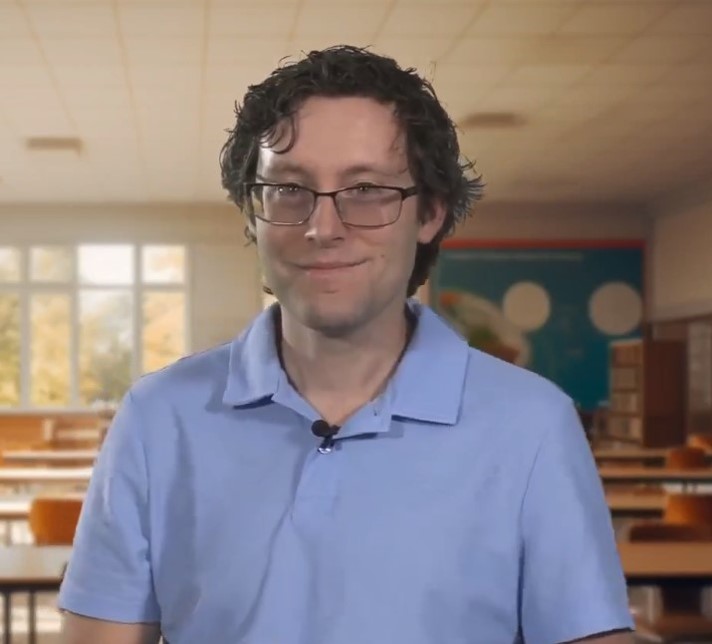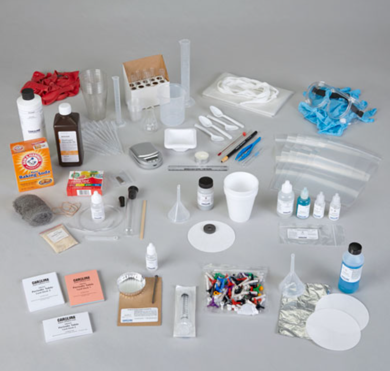Last updated on May 22, 2024
By Laura McAllister, Lindsey Schreiber, Ciara Rupert, Nate Easley III, Todd Wolfe, and Alex McDaniel
In the CTLD Course Development Cycle, MSU Denver instructors work with the instructional design team to improve their courses. Instructors identify course objectives, develop learning activities, create a user-friendly course, record high-quality multimedia content, and much more.
As part of the Fall 2023 development cycle, chemistry instructors Brooke Woolman and Dr. Hayden Swisher worked with the CTLD Instructional Design Team to simultaneously redesign the online and in-person versions of CHE 1150, an introductory laboratory course. They successfully integrated at-home, hands-on lab kits and developed a plan to create their own in-house lab kits in Spring 2024. Dr. Woolman, who teaches the online version of the course, collaborated with Dr. Swisher, the instructor of the in-person version, to ensure students would complete CHE 1150 with the same skills, regardless of which modality they pursued.
This project continues in the Spring 2024 cycle. Woolman and the team will work to develop in-house lab kits that are ordered and distributed by the MSU Denver chemistry department to maximize course quality and minimize costs for students.
Contents
Course Showcase Video
About Our Instructors

Lecturer Woolman has been teaching at Metropolitan State University of Denver since 2009. Woolman grew up in Colorado Springs but moved to Denver for college, attending the University of Denver for undergraduate and graduate school. Woolman has a B.S. in Chemistry (minor in Spanish and Psychology) and an M.S. in Analytical Chemistry. During graduate school, Woolman did research on clay minerals and explosive materials. When Woolman is not teaching, she loves to be outside. Woolman constantly escapes to the mountains to go hiking, paddle boarding, and camping with her family whenever possible.

Dr. Hayden Swisher has been teaching at MSU for ten semesters and was accepted a full-time position at MSU Denver to design new labs for CHE 1150 that are better suited to the non-major population. Dr. Swisher holds a B.S. in Chemistry and a Ph.D. in Biochemistry, where he developed methods to study protein interactions linked to cancer and disease. His passion for chemistry and teaching brought him to MSU Denver. Outside of work, he likes cooking, writing, reading, playing video games, and spending time with his family.
Showcase Examples
At-Home Lab Kits
One of Woolman’s goals in the online version of the course was to transition away from online simulations and toward hands-on lab activities. Although online simulations can successfully teach content, she noticed that students who took the online version of CHE 1150 did not have the same familiarity with glassware and other equipment as students who took the face-to-face version of the class. Now that CHE 1150 has integrated at-home lab kits, students will learn how to use this crucial chemistry equipment.

During the Fall 2023 development cycle, the instructional design team integrated customized at-home lab kits from a third-party company. The lab kits contain beakers, graduated cylinders, flasks, pipettes, a digital scale, a thermometer, and various chemicals. Students will complete a total of seven virtual labs and five hands-on labs, including the following:
- The Measurement and Uncertainty Lab, where students practice using chemistry equipment to take measurements and determine the accuracy and uncertainty of glassware and their lab balance
- The Stoichiometry & Percent Yield Lab, where students conduct a chemical reaction using aluminum metal, copper(II) sulfate, and a catalyst to reach conclusions about limiting reactants and percent yield
- The Titration Lab, where students perform redox titrations to determine the concentration of vitamin C in an unknown sample
Cross-Course Instructor Collaboration
Woolman and Dr. Swisher decided to partner throughout the entire development cycle to align the online and face-to-face versions of CHE 1150. The instructors worked together to determine what content should be covered and what lab activities could fit each modality well. They did their best to include the same content and similar learning objectives in both courses, even though students will often complete different lab activities to learn that content. They shared resources such as pre- and post-lab assignments, readings, videos, and the final exam.
The purpose of this work was to increase the quality of each course and improve the equitable experiences in both course modalities. Woolman and Swisher now hope that students will leave CHE 1150 with comparable knowledge and skills, whether they took the face-to-face or online version of the class.
Instructor-Created Media
The two instructors also worked together to record videos to support students in both courses. Most of Dr. Swisher’s videos were recorded in the CTLD Media Studio. He recorded many short, engaging lecture videos to review key course content. These resources helped give students the necessary background knowledge to complete the lab assignments successfully. Dr. Swisher and the CTLD Media Team also ventured into the chemistry lab on campus to record demonstrations and show how to use the necessary equipment.
Lecturer Woolman’s videos explain how to complete key calculations. Her detailed videos use narration and visuals to help all learners succeed. She uses audio annotation, accurate closed captions, strong color contrast, and other best practices for accessible media. In another example of cross-course collaboration, Woolman incorporated not only her own media, but also the majority of Dr. Swisher’s videos into her online CHE 1150 course.
CHE 1150 – Principles of Chemistry demonstrates the successful results of collaboration between instructors. Brooke Woolman and Hayden Swisher have collaborated to ensure a consistent learning experience across both online and in-person modalities. Their innovative approach includes integrating at-home lab kits and the development of in-house lab kits, enhancing hands-on learning opportunities. The instructors’ commitment to cross-course collaboration and the creation of supportive multimedia content further enriches the student experience. This ongoing project shows the potential of thoughtful course design to improve educational quality and equity while also striving to minimize costs for students.
Partnering for Continuous Improvement in Teaching and Learning
A significant factor in the success of this and similar projects is the support and funding from the Office of Online Learning (OOL), which has been instrumental in enhancing the quality of our online educational endeavors. OOL’s support and contributions have empowered faculty members to innovate and create a more enriching educational environment for all. Please visit the Office of Online Learning for more information about all that they are doing to help MSU Denver faculty members and students.
Want to get involved?
One way to find help with implementing student support in your course is the CTLD Course Development Cycle. This is an intensive but rewarding process where an instructional designer will work with you over several months to identify course objectives, develop learning activities, create a user-friendly course, record high-quality multimedia content, and much more.
Our instructional designers will help you build student support and implement them in your course. As compensation for the time and effort you spend developing your course, faculty are offered a $5,000 stipend for completing the development cycle. For courses that use OER, MSU Denver offers additional incentives.
For more information on the CTLD Development Cycle and how to apply to join, please read our CTLD Course Development Cycle spotlight.